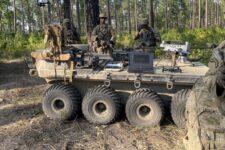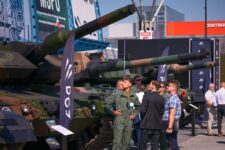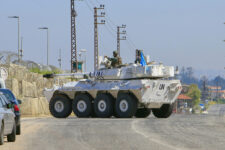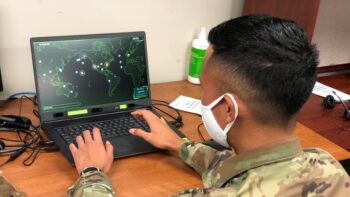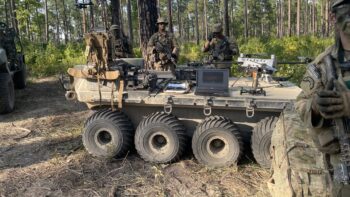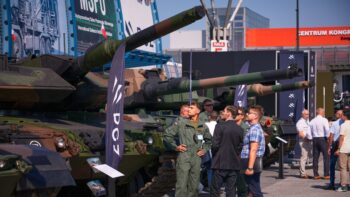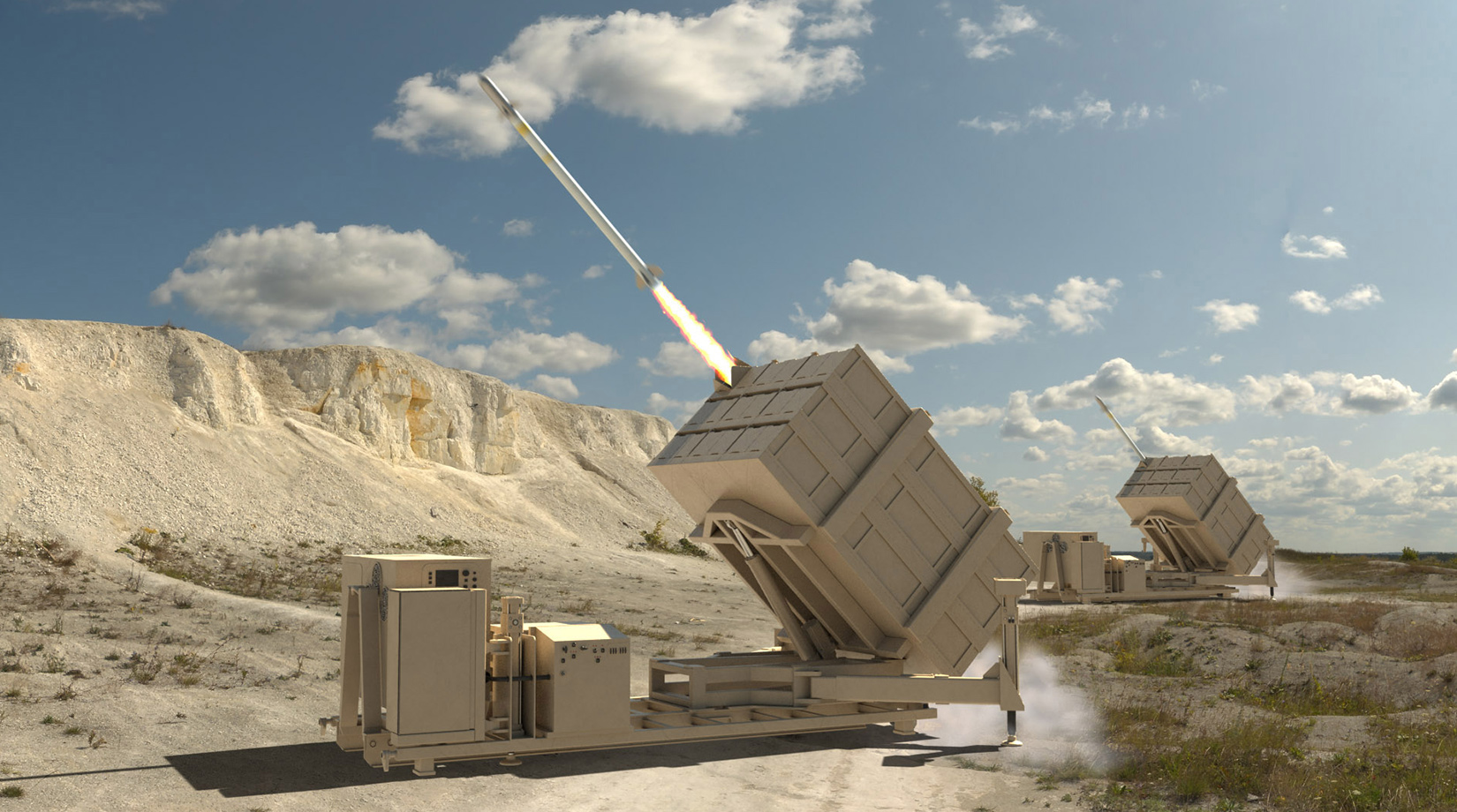
Dynetics won a prototyping contract to produce the Army’s Indirect Fire Protection Capability Increment 2 launcher. (Dynetics)
SMD 2024 — The US Army is launching a new competition to design a supersonic interceptor to take down cruise missiles, and at least two notable defense firms, Boeing and Anduril, tell Breaking Defense they are planning on offering options to the service.
“We’re going to compete that program next year,” Maj Gen. Frank Lozano, the service’s Program Executive Officer for Missiles and Space, said Tuesday to an audience at the Space and Missile Defense Symposium in Huntsville, Ala. “It’s budgeted across the [five-year program objective memorandum] POM and it’s a capability that we really need to get into the hands of our warfighters to give them a very capable system against supersonic cruise missiles.”
The new interceptor would be launched by Dynetics’s Indirect Fire Protection Capability Increment 2 (IFPC Inc 2) launcher. The Army is still testing out the launcher and using the RTX AIM-9X Sidewinder as the first interceptor, but as Lozano told Breaking Defense in June, the service is looking for something more capable to match the threat of supersonic cruise missiles.
Anduril and Boeing were among the companies on hand this week at SMD, and officials from both told Breaking Defense they are gearing up to compete.
Zachary Mears, Anduril’s senior vice president of strategy, said his company is pursuing two avenues into the competition — bidding as a prime contractor, but also talking with traditional defense contractors to supply the rocket motor for their bid.
“Anduril can still submit a prime opportunity with an Anduril rocket motor as its propulsion solution… and [Anduril Rocket Motor Systems can] support other industry performers in pursuit of it too,” Mears said. “So, we — Anduril — could have multiple [avenues into the competition] but we’ll only have one prime solution that we submit.”
Jim Bryan, Boeing’s director of integrated air and missile defense, said the company has a team in place preparing for the upcoming competition and conducting trade studies, which include weighing the risks and benefits of using non-traditional rocket motor companies.
“If you want a missile to have this much range… [it can] only be so much weight to carry that much fuel, which means you have to have fewer of them that you can load [in the launcher] because of weight restrictions,” Bryan said. “If it’s a lower range, then you can load more on there.”
“We’re trying to make sure the Army is informed,” he later added, noting that key part of those trade studies involves solid rocket motor propulsion designs from traditional producers and “unique” designs from companies like Anduril, Ursa Major and X-Bow.
“Hey [Army], are you more interested in an exotic new design, or… do we stick with what’s proven and known?” Bryan said. So far, he said Army leaders have said they do not have that answer but are interested in seeing the perceived tradeoffs.
“Some of the suppliers we’ve met with are surprisingly more advanced than you might think,” he added.
Anduril and Boeing will likely be just two companies among several more jousting for a spot on the prototyping competition. Both Lockheed Martin and Israel’s Rafael Advanced Defense Systems have previously told Breaking Defense they’re interested in competing, though that was before the Army announced plans to design a new interceptor.

